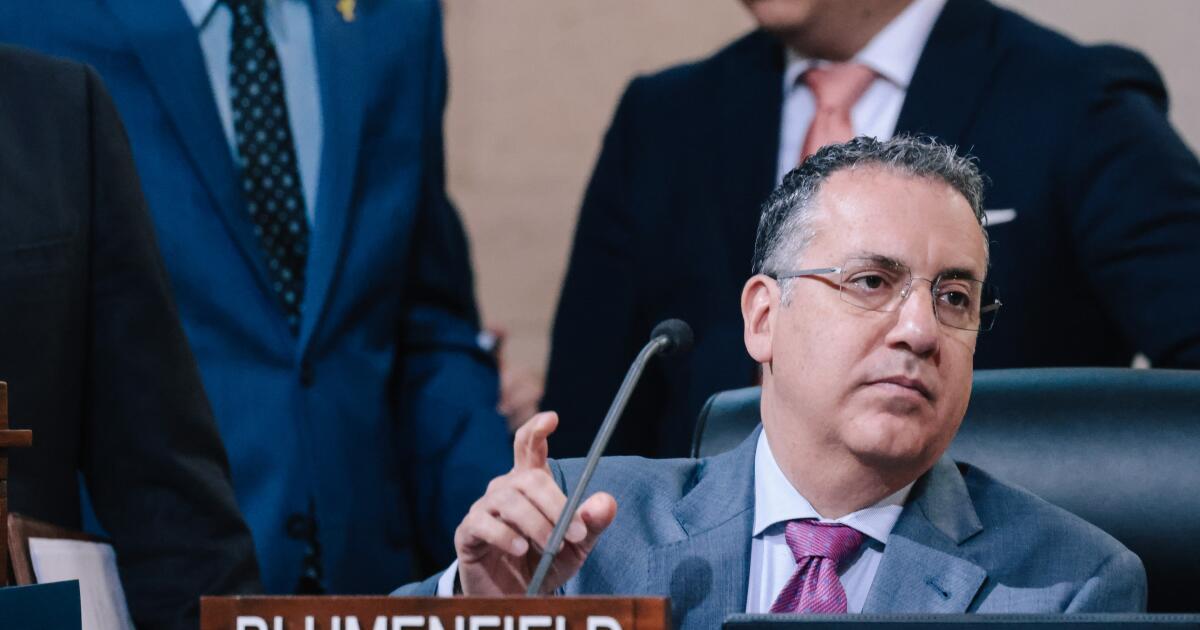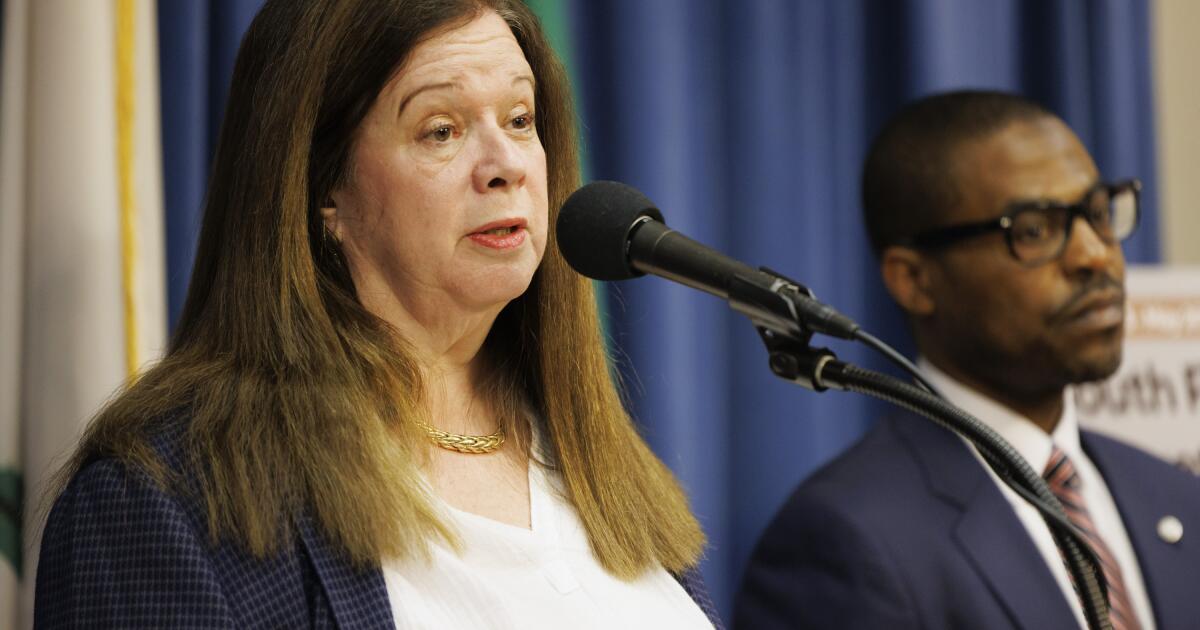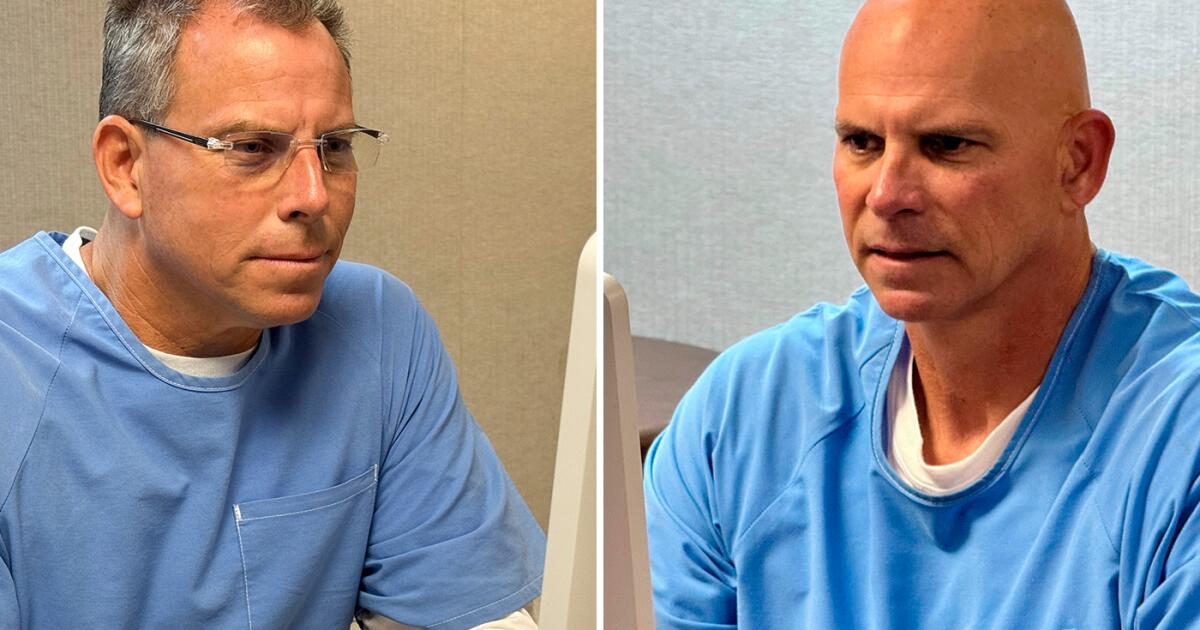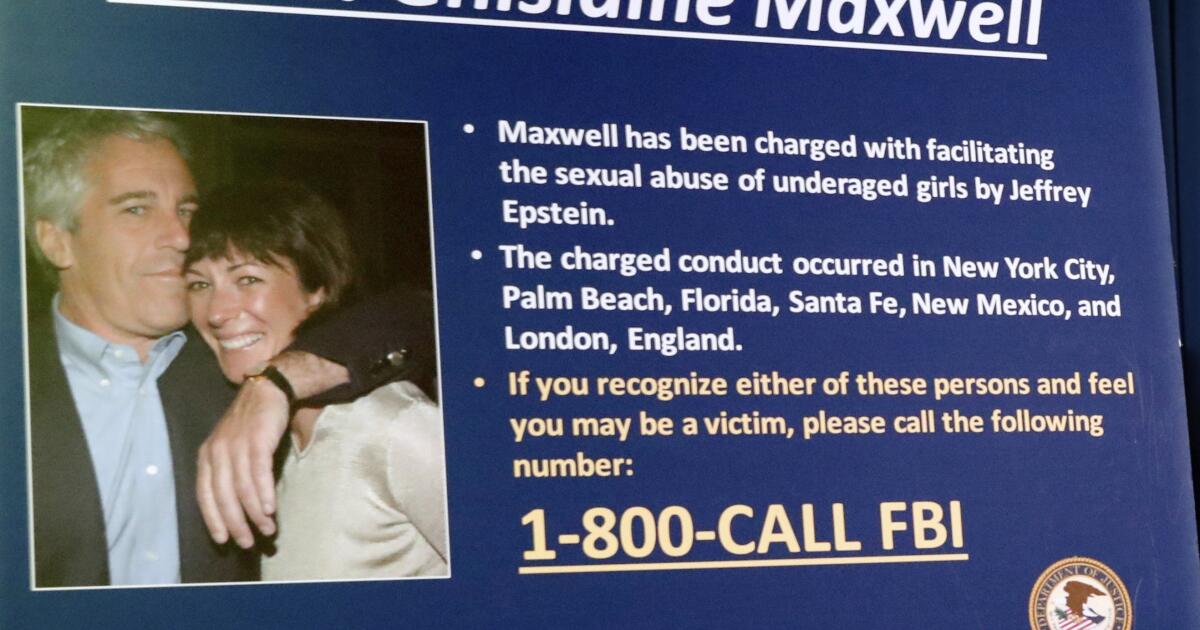L.A. City Council balks at request for $5 million for law firm in homelessness case
The Los Angeles City Council stopped short on Wednesday of giving another $5 million to a law firm hired to defend the city in a long running homelessness case, sending the question to a committee for additional vetting.
City Atty. Hydee Feldstein Soto had asked the council to provide a nearly sixfold increase in her office’s contract with Gibson Dunn & Crutcher LLP, taking the cost up to $5.9 million.
The council voted in May to provide Gibson Dunn $900,000 for up to three years of work. Over the following three months, the law firm blew way past that amount, racking up $3.2 million in bills.
“Obviously, we are not happy, and not ready to pay that bill that we didn’t bargain for,” said Councilmember Bob Blumenfield. “We were supposed to have been notified when they were exceeding that amount. It’s written in the contract that we were supposed to be notified at different levels. We were not notified.”
On Wednesday, after meeting behind closed doors for more than 90 minutes, the council sent Feldstein Soto’s request to the powerful budget committee for more review.
Blumenfield, who sits on that committee, did not offer a timeline for taking up Feldstein Soto’s request. However, he said he wants the city attorney to go back to Gibson Dunn to ensure that “taxpayers are better served.”
The L.A. Alliance sued in 2020, saying the city was doing too little to move people homeless people indoors and address the concentration of encampments in Skid Row and elsewhere. The group eventually reached a settlement with the city that required, among other things, the construction of homeless housing beds and the removal of encampments.
As part of the settlement, the city must provide 12,915 homeless beds or other housing opportunities, such as rental vouchers, by June 2027. L.A. also must remove 9,800 homeless encampments, such as tents or recreational vehicles, by June 2026.
Lawyers for the L.A. Alliance contend the city has repeatedly fallen short of the obligations spelled out in the settlement. In May, the group attempted to persuade U.S. Dist. Judge David O. Carter to seize control over the city’s homeless initiatives and turn them over to a third-party receiver.
Gibson Dunn waged an aggressive defense of the city’s actions, issuing hundreds of objections and working to undermine key witness testimony.
Carter ultimately rejected the request to appoint a receiver, but also concluded that the city had breached the settlement agreement in several ways.
Feldstein Soto did not immediately comment on the council’s action. She has previously praised the law firm, saying through a spokesperson that it “delivered exceptional results and seamless representation.”
The city is now planning to appeal portions of the judge’s order. Feldstein Soto said some of the additional $5 million would go toward work on that appeal, with Gibson Dunn representing the city through June 2027, according to a confidential memo reviewed by The Times.
In her memo, Feldstein Soto commended Gibson Dunn for preserving the city’s control over its homeless programs and preventing several elected officials from being ordered to testify.
Blumenfield also offered praise for Gibson Dunn, saying he appreciates the firm’s “good work for the city.” Nevertheless, he also wants Feldstein Soto to look for ways of cutting costs.
“Sending it to committee sends a message — which is, we don’t like what was put before us for lots of reasons,” he said.
Matthew Umhofer, an attorney representing the L.A. Alliance, said after the meeting that he was “heartened that the city didn’t give this misadventure a blank check.”
“I’m hopeful the City Council committee scrutinizes this,” he said, “and asks the important question of whether spending $6 million on an outside firm to avoid accountability is a good use of taxpayer funds.”




